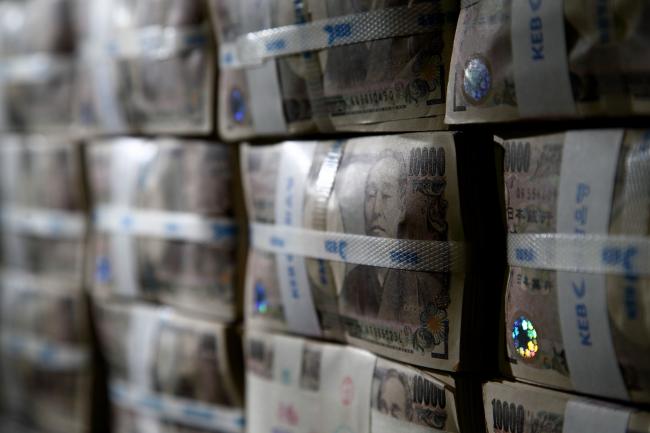(Bloomberg) -- The yen has been the worst-performing major currency in the past month as optimism over U.S.-China trade talks and Brexit sapped demand for havens. Another reason it is declining is more curious: increased trading of Japanese stocks by overseas investors.
The dynamics work like this: foreign funds have boosted trading of Japanese shares but they are unwilling to take on currency risk at the same time. For that reason they choose to hedge purchases for foreign-exchange movements, which typically involve selling yen via forward contracts that roll over periodically. This constant renewal of hedging creates a steady drip-feed of negative pressure on the yen.
“Most foreign investors in Japan’s stock market are hedge funds and their pairing of equities trading with the yen is a significant factor,” said Norihiro Fujito, chief investment strategist at Mitsubishi UFJ Morgan Stanley (NYSE:MS) Securities Co. in Tokyo. “The Japanese stock market is a great place for short-term dealing with its deep liquidity and well-established infrastructure for high-frequency trades.”
The proportion of Japanese share trading by overseas funds has climbed to the highest in almost a decade and they now account for more than 60% of transactions, according to data from Japan Exchange Group Inc. The dominance of overseas funds is even more pronounced in derivatives, where they are responsible for almost 80% equity futures transactions.
“Overseas speculators usually try to avoid taking both equity and currency risks,” said Takahiro Sekido, a former Bank of Japan official who is now a strategist at MUFG Bank Ltd. in Tokyo. “Their currency hedging supports the inverse correlation between the yen and Japanese stocks.”
Hedging is typically done by selling currency forwards or combining purchases of a currency in the spot market with a simultaneous sale in the forward market, known as a foreign-exchange swap. Such transactions between Tokyo-based banks and offshore market participants have more than doubled since 2006, data from the Tokyo Foreign Exchange Market Committee show.
The increase in hedging -- along with the waning of haven demand and the Bank of Japan’s accommodative monetary policy -- has seen the yen weaken 1.8% against the dollar in the past month. The currency dropped to 109.29 per dollar last week, the lowest since Aug. 1, before trading at 108.87 late on Tuesday in Tokyo.
The increase in overseas trading of Japanese stocks and the related currency hedging is playing into another long-running theme: an inverse correlation between the yen and the Nikkei 225 Stock Average.
The inverse correlation, which has prevailed almost continuously since 2006, is now close to the highest since November 2007, according to data compiled by Bloomberg.
